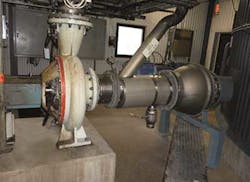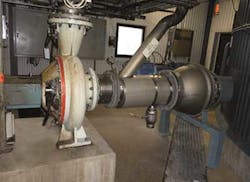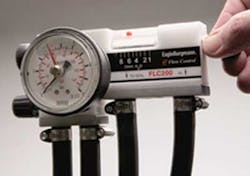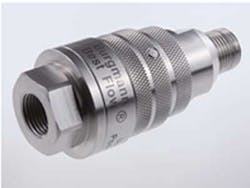Water is the most frequently conveyed - and thus the most frequently sealed - medium. Corresponding seal solutions are in demand in virtually all aspects of industry, from the supply and treatment of water to desalination to wastewater technology. The various types of water involved - fresh, pure, process, hot and waste, for example - place differing requirements on sealing technology.
While standard seals are mostly adequate for applications involving the supply of fresh water or conveyance of wastewater, special engineering solutions are necessary where heavy-duty applications in drinking water supplies or seawater desalination plants are concerned. On the other hand, thermal energy provision accounts for parameters such as pressure, temperature, sliding velocity, friction, water quality, and additives. Accordingly, EagleBurgmann seals significantly boost the availability of pumps in all types of water-related applications.
EagleBurgmann offers a range of systems designed to help save water without any reduction in the safe and reliable operation of the mechanical seals. Mechanical seals, single seals with or without flushing and/or quench, and double seals with pressurized water supply all operate in different ways, and these differences have a major influence on the amount of water they use. For example, the use of a supply unit along with the operation of a double seal can achieve (subject to specific operating conditions) savings in buffer water consumption of up to 97 percent compared to operation with an open flow.
EagleBurgmann's FLC100 Flow Controller is a control unit used for a constant, defined and pressure-independent flow. Its recommended flow rates are for double mechanical seals pressurized with open flow of 1.5-2 L/min, single mechanical seals quenched with open flow of 2 L/min, and packings and single mechanical seals with flush of 3 L/min. The buffer water quality is clean, free of solid particles and has low water hardness. Its operating limits include t1 max = 100°C, dependent on the elastomer, with EPDM as standard p3 max = 10 bar.
The company's FLC200 also serves as control unit for the individual adjustment and monitoring of pressure and flow rate at the seal. Further, it is an economical sealing water management solution for reducing operating costs through minimized rates of fresh water and wastewater. The FLC200 flow control unit is designed to enable easy adjustment of the rate of sealing water (flush, quench or buffer water) on rotary machines to the optimum and lowest level of water consumption necessary for the seal's safe operation. Key parameters such as pressure and flow can be permanently monitored for early detection of any malfunctions. The buffer medium is supplied by an external system. Its operating limits include flow rate of 0.5-4, 1-8, 5-15, and 10-30 L/min, p3 max = 20 bar / 2 MPa, t3 max = 85°C, accuracy of ± 5% (average), and pressure drop of 0.6 bar 3 L/min and 1.3 bar 8 L/min.
Another mechanical seal from EagleBurgmann is the BestFlow, primarily used for double mechanical seals in non-flow operation for temperature monitoring in the seal and flow control, on which the barrier water connection extends directly into the seal chamber. BestFlow controls the buffer water flow via a thermosensitive expansion element. If the temperature in the seal increases above the permitted value, the valve will open automatically, and fresher, cool buffer water can then flow into the seal chamber. Once the seal or barrier fluid cools down, the valve closes and the flow is stopped. This ensures that an exchange of barrier medium only takes place when cooling of the seal is required, resulting in enormous savings in terms of water consumption, without compromising operational reliability and safety. Recommendations include t3 output = 60°C or 82°C dependent on type, p3 max = 16 bar, p3 - p1 (=∆p) = 2 bar min.
Sealing technology by EagleBurgmann is used worldwide in a variety of municipal and industrial sectors, including water and wastewater technology. EagleBurgmann's product portfolio also includes seal supply systems to magnetic couplings, carbon floating ring seals, expansion joints, and gaskets and packings, as well as comprehensive services. For more information on EagleBurgmann and its products, visit www.eagleburgmann.us.






